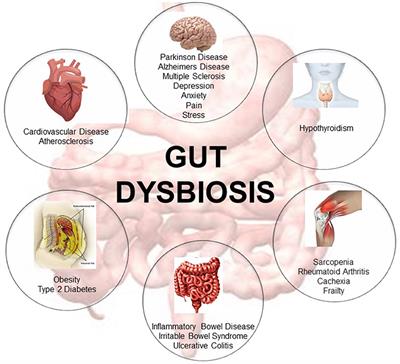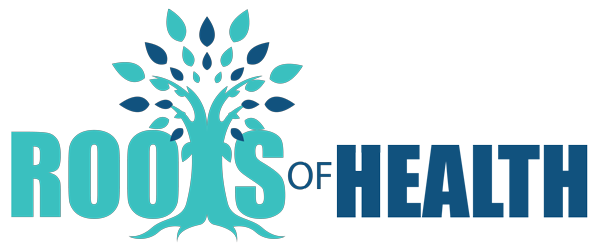Gut Health
Your digestive system’s influence on your health and wellbeing cannot be overstated. With the trillions of microbes being found in your microbiome its no surprise to find that these microbes influence how you think and feel.
Unfortunately, our lifestyles and stresses beat up our microbiome and over time subtly lead to a myriad of symptoms, illness and disease that we rarely connect back to the gut microbiome.
One result of an imbalanced gut micribome are nutrient deficiencies. How many of these common symtpoms do you have?
- Fatigue
- Dark circles under your eyes
- Slow wound healing
- Hair loss
- Weak fingernails
- Muscle cramps
- Canker sores
- Dry or rough skin
- Insomnia
All these are signs of nutritional deficiencies to include B vitamins, Magnesium, vitamins A and K, Zinc and Iron. If the gut isn’t able to properly absorb and assimilate your food, nutritional deficiencies are a common result that lead to chronic anemia, obesity, diabetes, cardiovascular disease and more.

Jessica’s story
Jessica was a 47 year old female who came in after having had a diagnosis of Fibromyalgia five years previously.
She was tired, didn’t sleep well, was starting to go through perimenopause and noticed she was putting on a few pounds. Her mental clarity was declining and she was frustrated she couldn’t remember things as well as she used to. She admitted to having some constipation and occasionally some diarrhea when she ate the “wrong” things.
We did a diagnostic stool test along with blood work and saliva. We looked at her hormones, her stress markers, inflammatory markers along with liver enzymes and other key players.
Her testing revealed she had a parasite along with systemic inflammation and cortisol issues. She was missing many key players in her microbiome and “bad” guys were overtaking her gut micriobiome.
We personalized a treatment plan for Jessica that included a modification in her diet to include more plant based foods, lean meats, and specific microbes through probiotics to rebalance her microbiome. We addressed her inflammation and her stress cortisol imbalances through lifestyle modifications and supplements.
She also took part in the 7 week Positive Intelligence program that helped identify her personal saboteurs and gave her tools to redirect her saboteurs that resulted in her feeling more empowered and willing to face her life’s challenges. At her first followup, she stated she was skeptical but she was feeling 75% better already and knew she was on the right path. She reported sleeping better, was pooping daily and didn’t feel as stressed. She stated she was becoming more aware of her saboteurs and although she still got sabotaged by herself and others she felt she was recovering faster when she did get sabotaged resulting in a better mood and she didn’t beat up her friends and family as much. She was optimistic about life again and just felt better overall.
Identifying and restoring imbalances in the gut are crucial to reclaiming your health and wellbeing. Some factors that contribute to gut health are:
Optimizing gut microbes for improved overall health
Fortunately there are steps we can take to optimize our gut microbes and improve our overall health. One of the most important factors is our diet. Certain foods are particularly beneficial for supporting a healthy gut microbiome. Prebiotic foods like garlic, onions, asparagus and green bananas contain fibers that serve as fuel fore beneficial gut bacteria. Including theses foods in your diet can help promote the growth of beneficial gut microbes. Consuming a diet rich in whole unprocessed foods like fiber, plant based foods and a wide diversity of whole grains, polyphenols, legumes and lean meats all support an optimal gut microbiome.
Lifestyle changes to enhance gait health and brain function
In addition to a healthy diet, certain lifestyle changes can enhance gut health and optimize the gut and gut brain connection. Managing stress through practices like meditation, yoga and regular exercise can positively influence the gut microbiome. Social connections are proving to be a vital part of a healthy gut and body. Adequate sleep is also crucial for maintaining a healthy gut microbiome as sleep deprivation has been shown to disrupt the balance of gut microbes. Regular exercise and re-ducing exposure to toxins while maintaining a healthy weight are other life style factors that contribute to a health microbiome.
Supplements and probiotics for a healthy microbiome
There are a ton of probiotics on the market today and its hard to know what to take. With state of the art testing, we are now able to identify which strains of microbes are living in a clients gut then being able to personalize and tailor a plan specifically designed for any deficiencies or excess in the microbiome to balance the gut and strengthen the overall health of the mind and body. Prebiotics, omega 3 fatty acids and so many other supplements are being advertised as necessary to heal the gut but without really knowing who’s living in the gut its a guess at best. I don’t want to guess and I don’t my clients to be guessing either. Using state of the art gut testing is a vital piece to identifying and restoring the gut microbiome.
The future of gut microbiome and gut brain research
The study of the gut microbiome and the gut brain connection is exploding and ongoing research is identifying strains and microbes we didn’t know about before that are having a positive impact of our health and well being. Scientists are exploring the use of fecal microbiotica transplanta-tions(FMT) as a potential treatment for certain gut and mental health disorders with some positive research studies being revealed. We have increasead our knolwedge but have much to learn and its an exciting time to be a part of personalizing treatment plans to the unique gut microbiome and seeing wonderful results.

